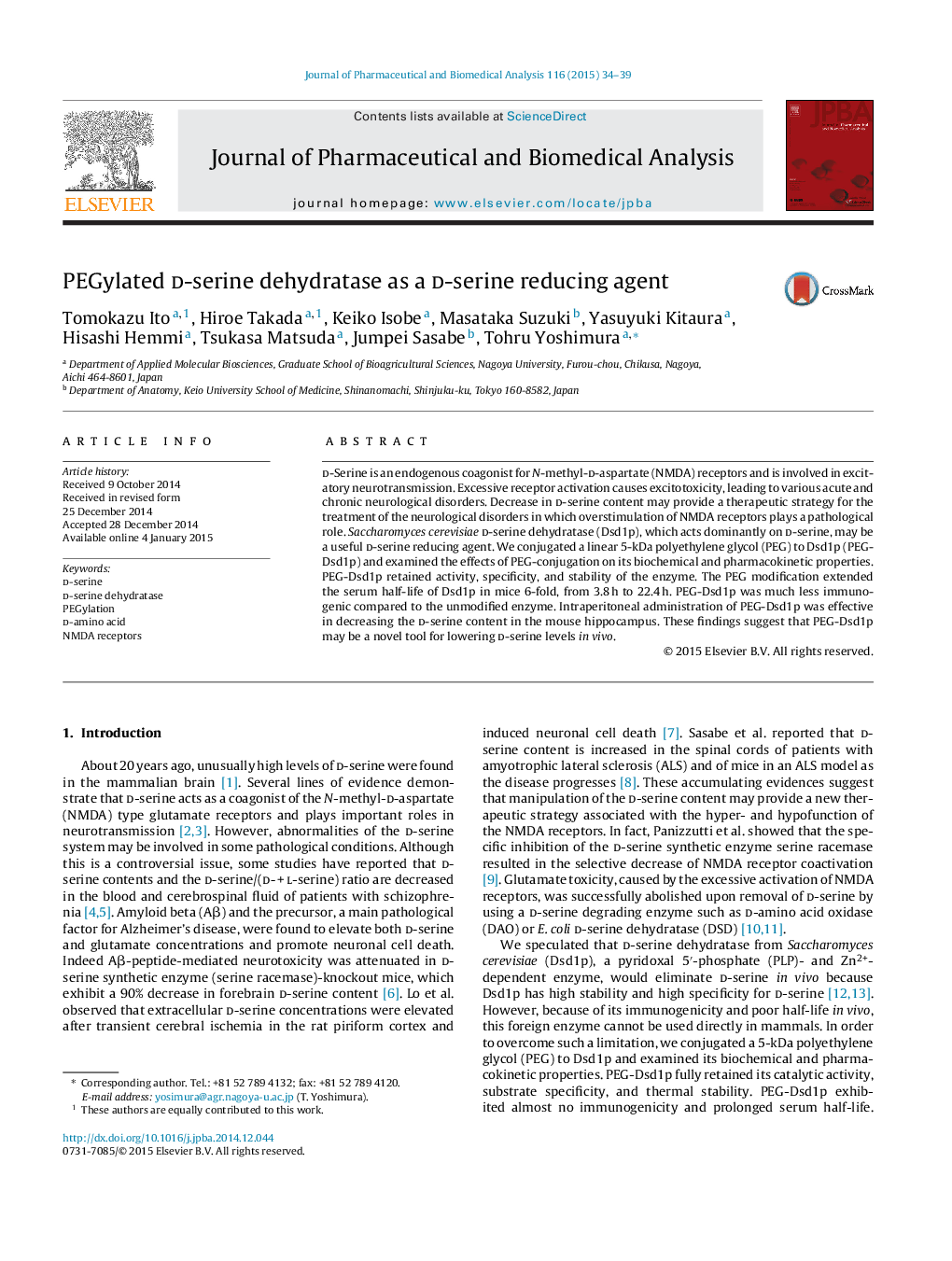| Article ID | Journal | Published Year | Pages | File Type |
|---|---|---|---|---|
| 1220471 | Journal of Pharmaceutical and Biomedical Analysis | 2015 | 6 Pages |
•PEG-conjugated d-serine dehydratase (PEG-Dsd1p) was prepared.•PEG-Dsd1p retained activity, specificity, and stability of the enzyme.•PEG-Dsd1p exhibited low immunogenicity and prolonged circulation lifetimes.•d-serine content in the mouse hippocampus was decreased by PEG-Dsd1p administration.•PEG-Dsd1p may be a novel tool for lowering d-serine levels in vivo.
d-Serine is an endogenous coagonist for N-methyl-d-aspartate (NMDA) receptors and is involved in excitatory neurotransmission. Excessive receptor activation causes excitotoxicity, leading to various acute and chronic neurological disorders. Decrease in d-serine content may provide a therapeutic strategy for the treatment of the neurological disorders in which overstimulation of NMDA receptors plays a pathological role. Saccharomyces cerevisiaed-serine dehydratase (Dsd1p), which acts dominantly on d-serine, may be a useful d-serine reducing agent. We conjugated a linear 5-kDa polyethylene glycol (PEG) to Dsd1p (PEG-Dsd1p) and examined the effects of PEG-conjugation on its biochemical and pharmacokinetic properties. PEG-Dsd1p retained activity, specificity, and stability of the enzyme. The PEG modification extended the serum half-life of Dsd1p in mice 6-fold, from 3.8 h to 22.4 h. PEG-Dsd1p was much less immunogenic compared to the unmodified enzyme. Intraperitoneal administration of PEG-Dsd1p was effective in decreasing the d-serine content in the mouse hippocampus. These findings suggest that PEG-Dsd1p may be a novel tool for lowering d-serine levels in vivo.
Graphical abstractFigure optionsDownload full-size imageDownload as PowerPoint slide
